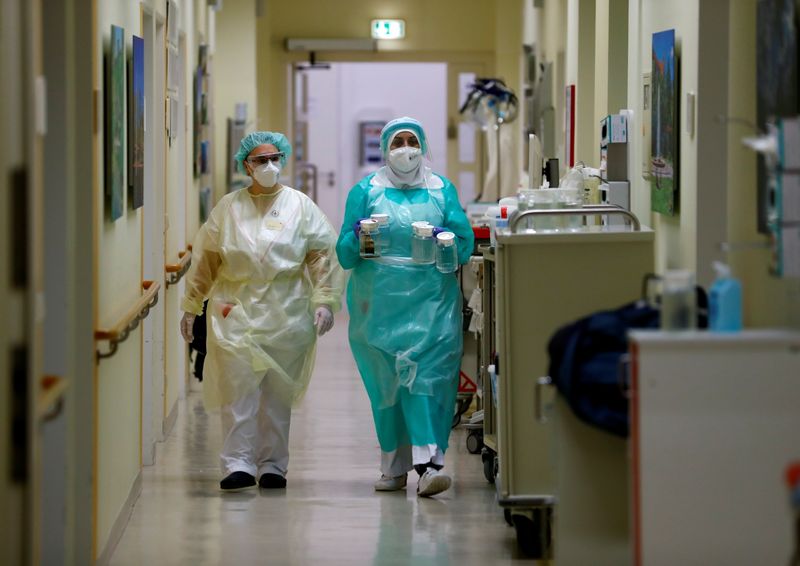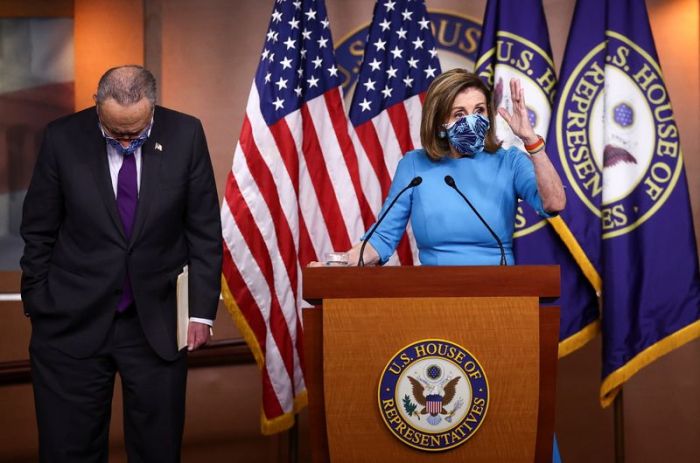BERLIN (Reuters) – German government officials dampened hopes on Friday that an economically painful partial lockdown would be lifted promptly at the end of November, since infection rates were continuing to surge.
The number of new daily coronavirus cases in Germany hit a record of 23,542 on Friday, around 1,700 more than on Thursday, bringing the total to 751,095, the Robert Koch Institute (RKI) for infectious diseases reported.
“As things stand now we can’t expect any measures to be relaxed on Monday,” government spokesman Stefan Seibert told a regular news conference. National and regional leaders are due to meet on Monday to discuss whether November’s closure of all gyms and entertainment venues has slowed the disease’s spread.
An Economy Ministry report issued on Friday found that the renewed “circuit-breaking” lockdown, designed to slow the spread sufficiently to avoid stretching hospitals and contact tracing schemes, was already hitting Europe’s largest economy.
It did not think the recovery would end in the fourth quarter, so long as restrictions remained limited. The near-total lockdown imposed from March devastated Europe’s economies, though Germany rebounded with 8.2% growth in the third quarter.
Germany’s health minister said it was too early to say whether the restrictions would need to be extended beyond November.
“It is actually too early to assess this now,” Jens Spahn told ARD television. “We will see in the next few days whether they are making a difference.”
Winter events like office Christmas parties, birthdays and wedding were unlikely to go ahead, he said.
Bavaria’s premier said the seven-day incidence of the virus must fall to below 50 per 100,000 residents before serious re-opening could be contemplated. Germany currently has 139 cases per 100,000 residents, according to the RKI.
(Editing by Toby Chopra)

























